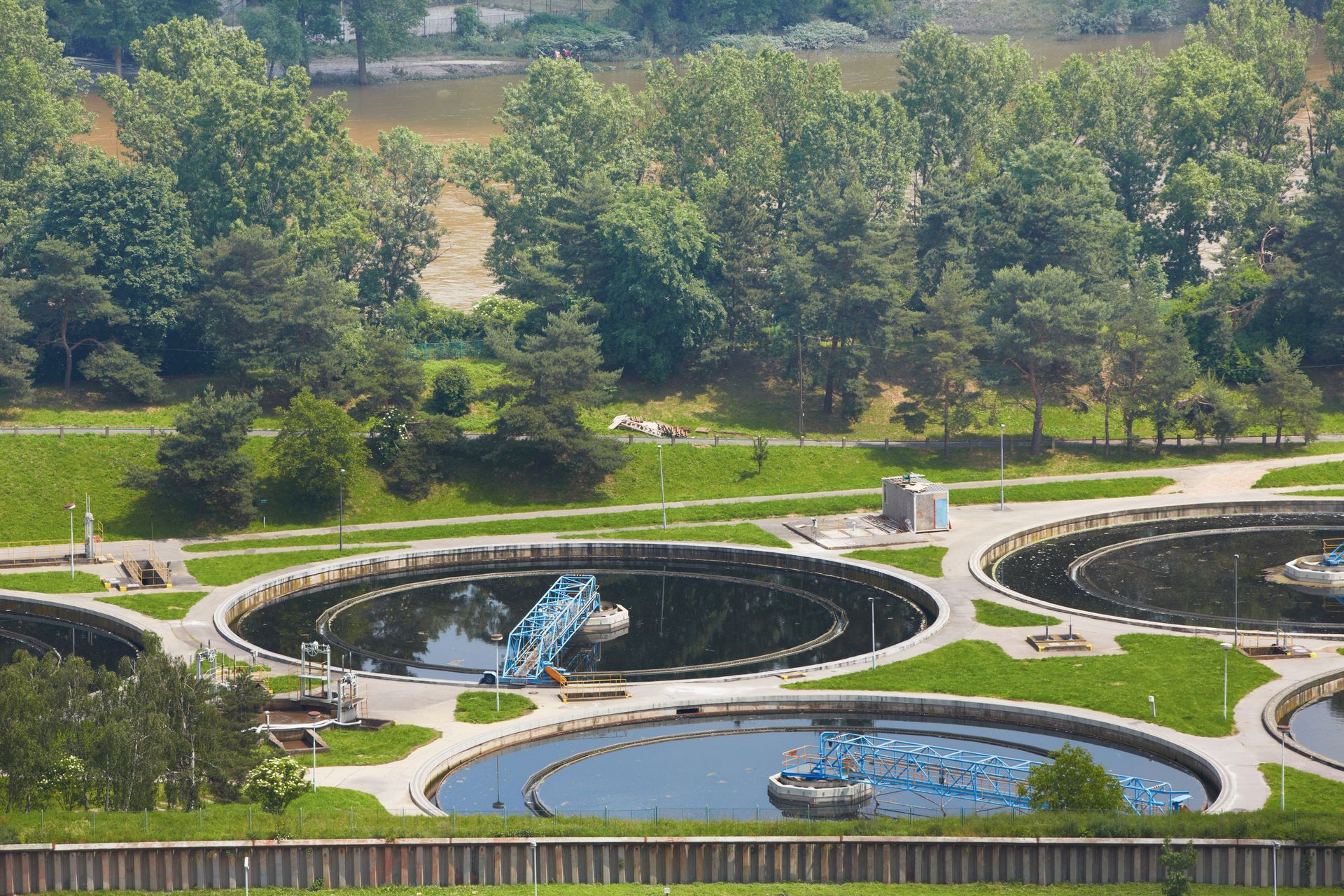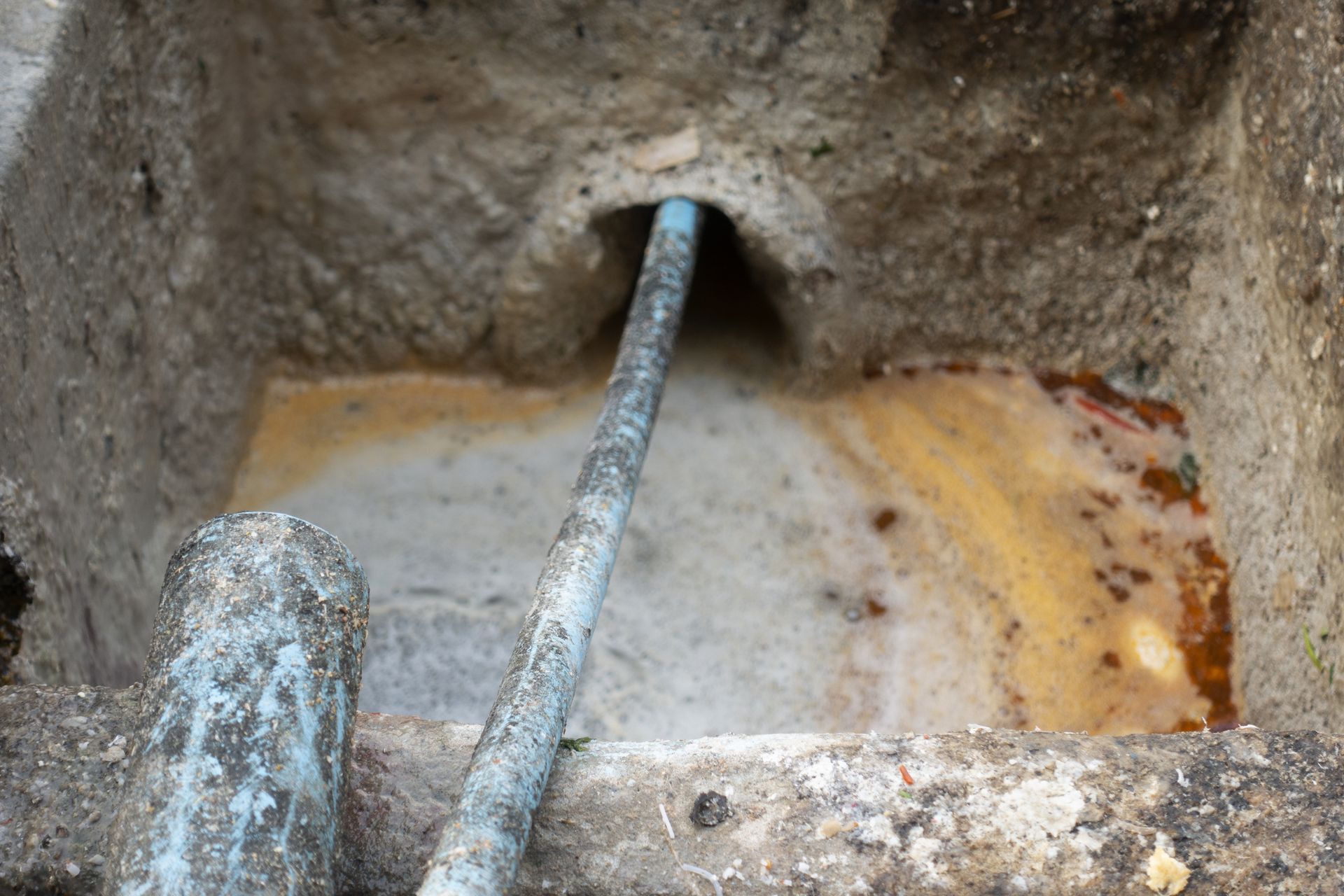Call Today for a FREE Quote
(404) 419-6887
Exploring Potable Water Reuse: From Wastewater to Safe Drinking Water

Potable water reuse, also known as water recycling or water reclamation, is a vital part of sustainable water management practices.
With freshwater sources becoming increasingly scarce and populations growing, the need to maximize the use of available water resources has become more important than ever and potable water reuse can make a huge impact.
Is Water from Wastewater Processing Potable?
Water that undergoes treatment in wastewater processing plants is not initially potable. While it undergoes primary, secondary and tertiary treatment processes to remove contaminants and impurities, it still requires further purification to meet potable water standards.
Although treated wastewater can be used for non-potable purposes such as irrigation, industrial processes and groundwater recharge, additional treatment steps are necessary to make it safe for drinking.
Transforming Water into Potable Supply
To convert treated wastewater into potable water, advanced treatment processes are required to ensure safety and quality:
- Advanced Filtration Methods:
The first step in the potable reuse process involves the utilization of advanced filtration methods such as reverse osmosis and membrane filtration. These techniques effectively remove remaining contaminants, microorganisms and particles from the water. Reverse osmosis, for example, uses a semi-permeable membrane to selectively remove ions, molecules and larger particles that results in cleaner and purer water.
- Disinfection Techniques:
Following filtration, disinfection techniques are employed to further enhance the safety of the water for consumption. Common disinfection methods include UV irradiation and chlorination. UV irradiation utilizes ultraviolet light to inactivate or destroy microorganisms and pathogens present in the water, making sure that it meets safety standards. Chlorination, on the other hand, involves the addition of chlorine-based compounds to the water to kill harmful bacteria and viruses, sterilizing it and making it safe for consumption.
- Additional Purification Processes: Additional purification processes may be implemented to further enhance water quality and remove any remaining trace contaminants. These processes may include ozonation or advanced oxidation, which involve the use of ozone or advanced oxidants to oxidize and degrade organic compounds and pollutants present in the water. By breaking down these contaminants at a molecular level, these purification methods make sure that the final product meets or exceeds drinking water standards.
Through these different treatment processes, treated wastewater can be transformed into potable water of exceptional quality.
Levels of Water Cleanliness and Their Applications
Different levels of water cleanliness determine their suitability for various practices:
- Non-Potable Treated Water:
- Used for Irrigation: Non-potable treated water is commonly used for irrigating agricultural crops, landscapes and green spaces. This helps conserve freshwater resources and supports sustainable agriculture practices.
- Industrial Cooling: Industries utilize non-potable treated water for cooling purposes in manufacturing processes and equipment. This reduces the demand for freshwater and minimizes environmental impact.
- Toilet Flushing:
Non-potable treated water is suitable for flushing toilets in residential, commercial and industrial buildings. This application helps conserve potable water for human consumption while reducing overall water usage.
- Potable Reused Water:
- Drinking: Potable reused water that has undergone advanced treatment processes, meets or exceeds drinking water standards and is safe for human consumption.
- Cooking: Potable reused water is suitable for cooking purposes, including boiling, steaming and food preparation.
- Bathing and Personal Hygiene: Potable reused water can be used for bathing, showering and personal hygiene activities. It offers a safe and reliable source of water for maintaining cleanliness and sanitation.
Integration into Municipal Water Systems
Incorporating potable water reuse into municipal water systems requires careful planning, infrastructure investment and regulatory oversight. Treated wastewater can be blended with traditional water sources in distribution systems to supplement supply and meet demand. Dedicated pipelines and storage reservoirs may also be established to convey and store reused water separately from conventional sources.
Rigorous monitoring and testing protocols are implemented to ensure the safety and quality of reused water throughout this distribution.
Partner with Atlanta's Leading Eco-Friendly Grease Trap Cleaning Company
Potable water reuse offers a sustainable solution for meeting water demand and promoting water resilience in the face of climate change and population growth. By embracing potable water reuse and expanding its adoption, communities can enhance water sustainability, reduce environmental impacts and create a resilient water supply for generations to come.
If you’re ready to take a step towards a greener future, Southern Green Inc. is here to help. We are Atlanta's premier provider of eco-conscious grease trap cleaning and servicing that aims to minimize greenhouse gas emissions.
Contact us today at (404) 419-6887 for a free quote and work with a company dedicated to environmental sustainability.
Recent Blog Posts
Contact us Today for a FREE Quote
We are committed to making grease trap cleaning and fryer oil recycling as clean and easy as possible. If you’d like to learn more about our services or get a quote, give us a call at (404) 419-6887.
Southern Green Industries is an Atlanta owned and operated grease trap cleaning and fryer oil recycling company operating in Atlanta and throughout the entire state of Georgia.
All Rights Reserved | Southern Green Industries | Built by REV77


